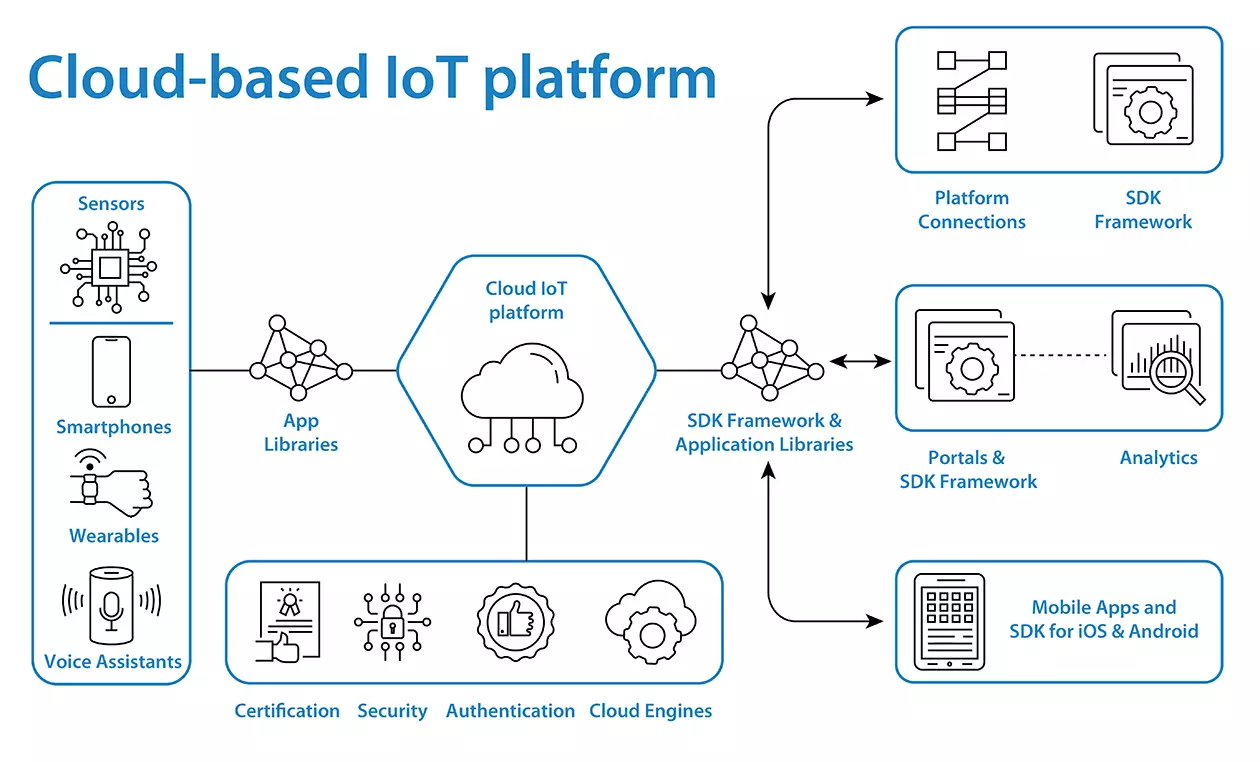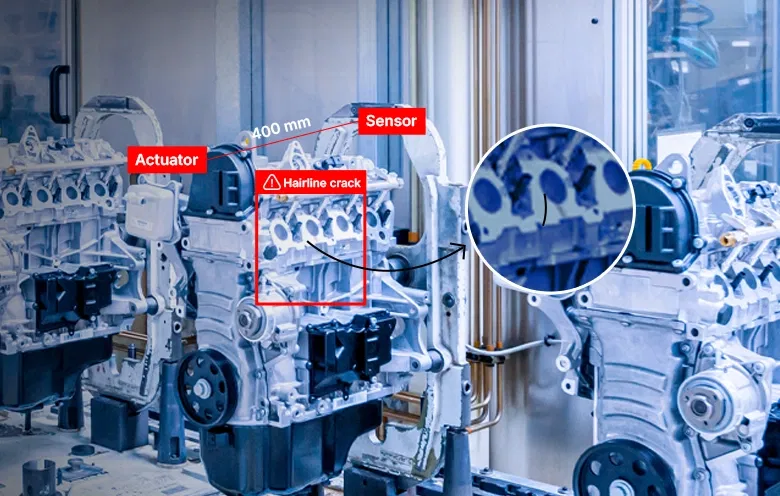Customer background
The client is one of the leading Original Equipment Manufacturers (OEM) of sensors and related hardware. They provide end-to-end solutions through their innovative and proprietary systems to enhance customer competitiveness and success. They are among the largest global electronics manufacturing services (EMS) & Original Design Manufacturer (ODM) companies. Their services include innovative design, engineering, manufacturing, real-time supply chain insight and logistics services to small, medium and large companies.
Challenges
In the fast-moving world, digitization is sweeping across many industries, creating an unparalleled demand for companies to innovate, experiment and deliver capabilities faster. As the demands of modern businesses have increased significantly, affecting the very nature and scale of software development, companies require a more flexible and efficient approach to software delivery. So, due to these changes in technical, organizational and cultural aspects, DevOps adoption and implementation have become essential.
In most organizations today, multiple teams are working on a single product. So, the biggest challenge is to make them work better and faster together toward shared goals. In the case of our client, to develop a single intelligent product, they deal with multiple vendors who had their teams and roles. And with so many teams having different responsibilities, communication and transparency take the center stage.
With such a hybrid scenario of multi-functional teams, separations on a technical and organizational level, added with the use of different tools became a serious issue for our client. Moreover, on the software development side, the client’s application deployment model had become unsustainable for several reasons.
This lack of cooperation and communication between different teams involved in making a single product resulted in uncoordinated activities, which hampered product development and lead to numerous other consequences.
It is natural that if multiple teams are developing a feature, there exist dependencies within the (Product Backlog Items) PBIs that are taken up by different teams in their respective sprint backlogs. So, to overcome it, the client needed to implement a robust continuous integration and continuous delivery (CI/CD) pipeline.
- First, there was no room for anyone to operate in silos since many of the processes and functionalities were interdependent.
- Second, the deployment process was slow and error-prone.
- And finally, there were few challenges like traceability to source control as the software build and deployment processes were dependent on other teams.
Solutions
DevOps is considered important in the ability to frequently and reliably update a system in an operational state. DevOps presumes automation and seamless cross-functional collaboration between multiple teams. Hence, our client needed a robust DevOps approach to manage a single smart product developed by multiple teams.
The teams involved in making a single, smart product were:
Team 1 – Hardware
This was the client’s core team. The main role of this team was to make devices IoT enabled so that the software can send data to the cloud.
Team 2 – Cloud Platform
This was the Softweb Solution’s team. The main role of this team was to ensure connectivity of the devices so that data could be sent from the cloud to the device and vice versa. Along with providing a ubiquitous cloud platform for their products, we were responsible for developing the following:
- Communication protocols – AMQP, MQTT, WSS, HTTPS
- Real-time rules engine that decides whether to raise an alarm, log data, or take an action
- API to provide interaction with the web and mobile apps
Team 3 – Frontend and Commerce Platform
This team was an external company responsible for creating user-friendly interfaces to represent the data transmitted from the cloud to the device. This was the commerce side of the product.
The first rule of the DevOps model is “you build it, you own it”. So, in order to ease and streamline the governance of multiple teams and increase visibility into its development environment, the client implemented a robust DevOps model. On the software front, the company was seeking a tool that would integrate seamlessly with its products.
The ultimate goal of our client was to enable potential customers in the manufacturing industry and help them to make their factories smarter with the Internet of Things (IoT). They also wanted to empower their customers with actionable insights from the generated data. And their requirement was clear – an agile approach that would enable different teams to collaborate seamlessly and deploy an IoT platform to create intelligent products that would enable them to connect their devices to the cloud.

So, to overcome the challenges faced by the company and meet the success of multiple business goals, our client needed:
What they needed
The solution provided
- Smart components that enable intelligence at their innovation centers.
- Software that resides on the device that translates and communicates data.
- To manage market entry of both the IoT physical and digital products along with IoT platform implementation, connectivity and visibility.
- To enable business intelligence and data monetization opportunities.
- Leading to a new age of e-commerce.
- Web based portals for all device management activities, administration and reporting.
- SDK framework covering core functional requirements.
- Core cloud components
- Device management portal(s)
- Consumer & user insights
- Data analytics & BI
- Application & cloud connections
- Deployment and management of cloud logic, rules, events, notifications, storage, security, governance, authentication and platform engines.
- Movements of information between all other components.
- Fine tune device & consumer data
- Usage and trend analysis
- Enhanced business intelligence and predictive analytics
- Data science and data interpretation
- Software to utilize statistics and machine learning to discover and communicate meaningful patterns in data, find hidden trends and insights from devices and external data.
- 25%
Improved service and reliability
- 40%
Improved collaboration between different teams
- 30%
Enhanced product delivery speed
-
Industry
-
Technologies / Platforms / Frameworks
Azure, .Net Core, Docker, Kubernetes, GitHub
-
Benefits
- Improved operational efficiency
- Transparent processes
- Faster deployment
- Minimum deployment errors
- Faster bug identification and resolutions
- Increased product delivery speed
- Improved collaboration
Decades of Trust & Experience
1630+
Projects
545+
Experts
26+
Products and Solutions
1020+
Customers
Similar Case Studies

Enhanced quality control system for a manufacturing company with machine learning

Streamlined invoice reminder processes with RPA for a leading manufacturing company

Transforming battery management with IoT-powered insights
Connect Now
Our experts would be eager to hear you.
